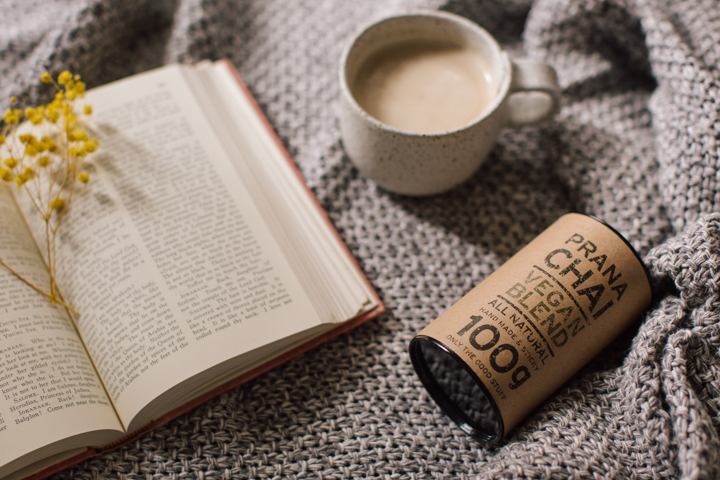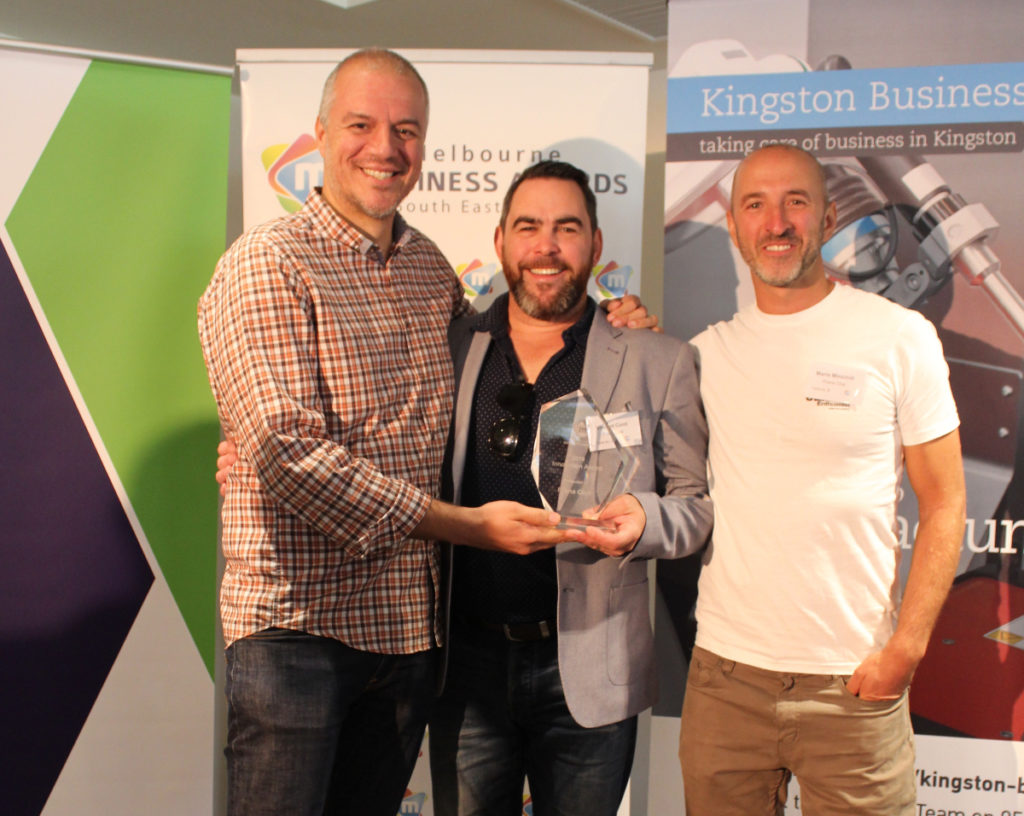Mario loved chai so much he started a side hustle to share his love with the world. After years of dedication and difficulties, he was finally able to focus on the business full-time. Here is his Merchant Story.
Mario Minichilli grew up in one of Melbourne’s ‘hospitality families’, spending his youth in and around their bars, pubs, hotels and restaurants.

In those days, there were “only a few coffee roasters in town and a barista was judged by how much froth he could tower onto a cappuccino!” Now, Melbourne is known as one of the world’s leading coffee cities. Born into this scene, Mario loved the sense of community from the beginning. “I loved and still love it. I enjoy serving people and the social aspect of the job. It’s very rewarding to be a positive part of someone’s day.”
But while he loved working in hospitality, it wasn’t too long before Mario started dreaming of adventures abroad.
Inspired by the Discovery Channel, Mario took off on a four year backpacking trip with his best friend, Vincent Conti. “We wanted to see places and cultures that were as different to Australia as possible. We visited archaeological ruins in South East Asia, then stopped in London to work and save some money, then we spent a long time in Africa visiting different tribes.”
When they returned home, Mario & Vincent couldn’t find the delicious masala tea they had grown to love in Asia. So, they opened a cafe and started blending their own.
Following in his family’s footsteps, at the age of 26 Mario co-founded his first cafe. He began to make his own mark on the Melbourne cafe scene.
The only options on the market for chai in Australia were sickly sweet chai syrups and powders – packed with sugar and artificial flavours. After spending so much time in Asia, Mario and Vincent knew now what chai could be. They wanted to share this deliciousness with the customers at their new cafe.
This ‘real chai’ was an immediate star on their menu. “For a long time, the majority of leading cafes were serving up specialty coffee, but subpar alternative drinks. If you didn’t feel like coffee there was only super sweet hot chocolate or subpar loose leaf tea.”
Word began to spread. Other local cafe owners who tried their chai started to ask if they could serve it at their own cafes. Happy to see others excited too, Mario and Vincent agreed. So, without any thought into branding or marketing, they sold their very first wholesale chai. It was casual at first: passing zip lock bags over the counter to anyone who asked for it. But they took the time to teach others how to brew it, excited that they could be a part of spreading chai culture in Australia.
As more people asked about wholesale, Mario got so busy that he felt like he was managing two separate businesses.
Running your own cafe is more than a full time job – it’s exhausting enough on its own without also selling chai blends on the side. “I felt like I was always working, even on my days off. I was on the phone all day putting out spot fires and talking to customers.”
Fate had it that they met and befriended Koray Gencel, who was keen to help them push their business forward. As a trio, the workload was a little more manageable. Working together they developed strategy, put together plans and developed the product.
But as soon as they began growing their business, they hit a major roadblock. Cafe owners kept turning their product down, as they thought it was too difficult to make.
Mario and his co-founders found themselves struggling to convince these time-poor cafe managers that brewing real chai was worth the investment. These owners and managers couldn’t understand why they should serve something that took twice as long to brew as the cheap and easy powders.
The first cafes to buy their chai had fallen under the spell as consumers themselves: they were already convinced of the flavour and quality. They had been an easy sell, so Mario was surprised to hear that others didn’t think it was worth the effort.
“We tried with very limited success to convince people to take more pride in the way they prepared chai, to brew it with the same care as coffee and to serve it to the customer in a way that offered even more ceremony than a quality cup of coffee.”
For Mario, Vincent and Koray, the easy way out would be to adapt their product to make it more convenient to brew – or, to make it with lower quality ingredients to make it more affordable. But they had faith that their chai was a real and honest sell, and that it would add great value to the cafes who decided to stock it. They decided that their only weapon was time.
Not ready to give up, they were determined to make their business work: though it was hard to stay confident in their vision.
They felt like they were making very little progress, but Mario believed in their mission. They didn’t do any marketing, or run any fancy sales strategies. “It took years of ground work and education, and a lot of our resources were poured into making sure we didn’t need to compromise our quality. It was so hard to change people’s minds, but we noticed that everyone that DID come on board loved it. So we knew that it was only a matter of time.”

They let the product speak for itself. Those who did discover it, loved it. After a few years they looked back on where they were compared to the year before. It was only in hindsight that they realised they were growing – albeit slowly.
Finally, at age 37, Mario felt the business had grown to a size where he could consider transitioning from a cafe owner-operator to work full time on Prana Chai.
After years as a side hustle, Prana Chai finally had grown to a size where it could be its own business. For Mario, Prana Chai now offered the possibility of a Monday to Friday, 9 to 5 job – something unheard of in the food and beverage industry. “It was never a problem for me working the weekends in the cafes, but as my daughter grew older I felt obliged to adjust my work/life balance.” Now his daughter was in school, he wanted to make sure he could take the weekends off to spend with her.
He also saw the potential for travel, which he had fallen in love with when he was young. While owning a cafe tethers you, a wholesale business would afford him the flexibility he needed to have travel in his life. “We felt like the possibilities were endless, in comparison to being restricted by the amount of seats we could fit into our cafes. We honestly thought we could build the best Chai company in the world!”
Mario has succeeded in sharing his love of chai, which has become the second most popular hot drink in Australia.
As the new market leader, it wasn’t long before people started using the brand name to order. “I’ll have a Prana” was universally understood, and as Melbourne’s baristas moved to other cities, and abroad, orders started coming in from cafes in Japan, Germany, and the USA. Prana had gone global.

And after years of hard work, Mario was finally able to bring travel back into his life. He lives with his wife and daughter on a boat for part of the year, and gets to travel a lot for work, too. “We get to travel to origin to meet with growers, travel to different cities to research the cafe market and assess whether it is a good fit for us as we grow!”
“We have also helped bring Melbourne’s famous cafe culture all over the world, by supplying cafes in far flung places. Every time I travel I am constantly amazed at the influence that the Melbourne cafe scene has had on so many people and places globally.”
Mario is excited about the future: they are now in a position to give back to their community, and the country that inspired him.
They are busy setting up a charity to help educate girls in India, many of whom are the children of tea plantation workers. They also try to get involved in as many good causes as they can. Mario still lives by the mantra his family taught him in his youth: “take care of the customers, and the business will take care of itself!”
…
Mario Minichilli is one of the founders of Prana Chai. Prana Chai is served in cafes all over the world and their chai blends are available online in Australia, the UK, Europe, USA, Canada, South America and Asia.
Merchant Stories: Real entrepreneur stories from real people. If you’d like to share your merchant stories, email us.


